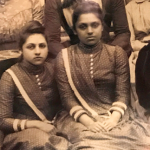This is an edited version of a speech given by Jan Royall, Principal, to pupils from 20 schools in Hong Kong, on Thursday March 21, 2019.
Good evening, a real pleasure to be here especially with wonderful young people from many schools and, of course, some parents. I am grateful to the principal Christopher Coates and to our alumnus Jeremy Lai who have both done so much to make us feel welcome here.
Bright students like you have many choices in front of you. You will be tempted by Ivy League universities and universities here in Asia – but I would like you to think about why you should apply to Oxford, ranked the best university in the world for the third consecutive year. Our Chancellor is Chris Patten, Lord Patten of Barnes who, as you know, was the final Governor of Hong Kong. He is a very fine man and a colleague of mine in the House of Lords.
I am principal of Somerville College which is part of Oxford University. It probably all sounds very confusing. Oxford has over 24,000 students and it is made up of 38 colleges in which the students live and do much of their studies. They are rather like mini universities.
At Oxford our focus is on personalised education. Our central mode of teaching is the tutorial, where just one or two students meet with a tutor every week, and get a really deep grounding in their subject, tailored to their interests and their abilities. They have lectures in university departments as in any other university.
The tutorials and some lectures are given by tutorial fellows like Dr Faridah Zaman, our tutorial fellow in Modern History who says on our website:
“At its best the tutorial system produces sophisticated thinkers who can reflect on the nuances of an individual topic, critically judge competing perspectives and explore the wider implications of their arguments – skills that are arguably now more valuable to our society than ever before.”
It is an amazing privilege to discuss and debate every week with experts, leaders in their field, and our academics really are some of the best in the world. They are pushing back the frontiers of knowledge, as well as using their research to benefit wider society. Our fellow and tutor in biochemistry Elena Seiradake recently made a breakthrough insight into the molecular structure of the brain.
But there is more to Somerville than academic achievement. We are also a vibrant community. We have about 700 students of whom 430 are undergraduates. We enable them to flourish in every way, giving them the confidence to succeed. They have to work hard at their studies but there are also sporting, music, cultural, debating and many other activities. It’s a glorious environment in which to learn and you make lifelong friends who are studying other subjects, broadening your horizons.
We have the best of both worlds at Oxford – as a big and successful university we have the financial resources to provide up-to-date facilities for scientific research. We have glorious libraries like the Bodleian Library, which is one of the biggest libraries in the world, as well as our own beautiful and very extensive College Library at Somerville. But the colleges in which students live, eat and study provide a caring but stimulating environment. One special feature of Somerville is that from September, all of our undergraduates will be able to live in college for the three or four years of their studies. This means that they don’t have the additional expense or hassle of living in rented accommodation. We also provide great support for our students in terms of health and welfare but also academic.
Somerville has a great history but, by Oxford standards, we are very young – we were founded in 1879 to include the excluded who at the time were women. Indeed we were named after a great woman, Mary Somerville, who was an extraordinary British mathematician, astronomer and science writer. The word scientist was coined for her.
By naming the college after her, the founders made it clear what high aspirations they had for Somerville women and we continue to have high aspirations for all of our students.
So you see – right there at the start of our history – those were and still are the two great aims of Somerville. We want to include people who are excluded from education, and we want to achieve excellence. These days our students are both women and men. But our ethos remains the same, welcoming the brightest and best students from all backgrounds, countries and cultures. We became a mixed college in 1994. Since then we have had some fabulous men like Jeremy, but some of our older alumni, naturally all women, have been astonishing. There are many inspiring stories in our history.
This is the college of Margaret Thatcher, the first woman Prime Minister in the United Kingdom, Indira Gandhi, Prime Minister of India and Dorothy Hodgkin. Dorothy was a student at Somerville and later a tutor in chemistry who advanced the technique of X-ray crystallography . In 1967 she was awarded the Nobel Prize for Science and, to my pride and shame, is still the only British woman scientist to have been awarded the Nobel Prize.
All these women and nowadays all the men are passionate about knowledge – but often they are equally passionate about using their excellent education to bring change where it is needed.
If that’s the kind of person you are – then we would like you to apply to Somerville. I know that studying in the UK, and studying at Oxford, is very expensive and the expense can be off-putting.
But at Oxford there is a lot of financial help available for those who are struggling with costs – and not enough people know about this. We have a number of bursaries at Somerville and scholarships. We offer the Ng Teng Fong Thatcher Scholarship and there are others at Oxford for students from Asia like the Kwok scholarships. You can find out more from the University of Oxford website.
We know that there are very talented people in every strata of society, and we would like to make sure that we are reaching out to all of them.
One of my favourite photographs in the Somerville archive is from 1891. It shows Agnes Maitland, who was our second Principal, surrounded by young women. And on the far left of the picture there is an Indian woman in a sari. That is Cornelia Sorabji, who was the first woman to study law at Oxford. Not just the first Indian woman but the first woman – full stop. And then sitting in front of her are two more Indian women, the princesses Bamba and Catherine Duleep Singh.
Oxford has always been a global university. There are very strong bonds between us and our alumni in Asia, especially here in Hong Kong. I very much hope that some of you will come to Somerville in turn and strengthen those connections in future.


